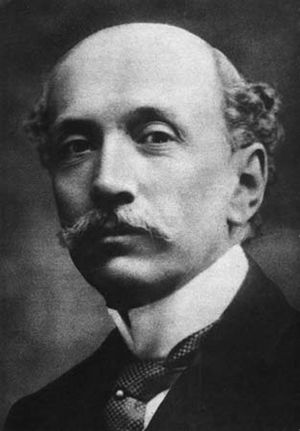Eduardo Dato facts for kids
Quick facts for kids
The Most Excellent
Eduardo Dato
|
|
|---|---|

Photograph by Kaulak
|
|
| Prime Minister of Spain | |
| In office 28 April 1920 – 8 March 1921 |
|
| Monarch | Alfonso XIII |
| Preceded by | Manuel Allendesalazar |
| Succeeded by | Gabino Bugallal Araújo (Acting) |
| In office 11 June 1917 – 3 November 1917 |
|
| Monarch | Alfonso XIII |
| Preceded by | Manuel García Prieto |
| Succeeded by | Manuel García Prieto |
| In office 27 October 1913 – 9 December 1915 |
|
| Monarch | Alfonso XIII |
| Preceded by | Álvaro de Figueroa |
| Succeeded by | Álvaro de Figueroa |
| Personal details | |
| Born | 12 August 1856 A Coruña, Spain |
| Died | 8 March 1921 (aged 64) Madrid, Spain |
| Resting place | Pantheon of Illustrious Men |
| Political party | Conservative |
| Spouses | María de Barrenechea, 1st Duchess of Dato |
| Children | 3 |
| Signature | |
Eduardo Dato e Iradier (born August 12, 1856 – died March 8, 1921) was an important Spanish political leader. He lived during a time in Spain known as the Spanish Restoration period. This was a time when Spain was a monarchy with a king.
Eduardo Dato served as the Prime Minister of Spain three times. This is like being the head of the government. His terms were from 1913 to 1915, for a short time in 1917, and again from 1920 until he was sadly killed. He also held many different jobs in the government as a minister. He was also the president of the Spanish Congress of Deputies four times. This role is similar to the speaker of a parliament.
Contents
Early Life and Political Start
Eduardo Dato was born in A Coruña, Spain. He studied Law at the Complutense University of Madrid and finished his studies in 1875. Two years later, he opened his own law office.
In 1883, he was elected to the Spanish parliament. This was the start of his long career in politics. By 1892, he became an Under-secretary for the Ministry of the Interior. This meant he was an important helper in a major government department.
Rising Through Government
Over the next 15 years, Eduardo Dato held very important government jobs. He was the Minister of the Interior and the Minister of Justice. These roles put him in charge of keeping order and making sure laws were fair.
In 1907, he became the Mayor of Madrid, the capital city of Spain. This was a big responsibility. In 1913, he became Prime Minister for the first time. He left this job in 1915 but returned for a short time in 1917. Later, he also served as the Minister for Foreign Affairs and Minister of State. In 1920, he became Prime Minister again.
Eduardo Dato was also involved in international law. He was a member of the Permanent Court of Arbitration in The Hague. This is a court that helps countries solve disagreements peacefully. He even became its vice-president in 1913. He was also part of the International Law Institute.
His Assassination
On March 8, 1921, a very sad event happened in Madrid. Eduardo Dato was being driven from the parliament building. Three anarchists from Catalonia, named Luis Nicolau, Pedro Mateu, and Ramón Casanellas, attacked him while riding a motorcycle. Eduardo Dato was killed.
This was not the first time a Spanish prime minister had been killed. Just nine years before, in 1912, José Canalejas was also assassinated. After Eduardo Dato's death, King Alfonso XIII of Spain honored him. The King gave his widow the special title of "Duchess of Dato."
Honors and Family
Eduardo Dato received several important honors during his life and after his death. These included:
- The Chain of the Order of Charles III.
- The Knight Grand Cross of the First Class of the Order of St. Gregory the Great from the Holy See.
- The Grand Cross of the Order of Christ from Portugal.
- The 340th Grand Cross of the Order of the Tower and Sword from Portugal.
After he died, his wife was given the title of Duchess of Dato to honor him.
Eduardo Dato was married to María del Carmen de Barrenechea y Montegui. They had three daughters:
- Isabel Dato y Barrenechea
- María del Carmen Dato y Barrenechea
- María de la Concepción Dato y Barrenechea
Images for kids
See also
 In Spanish: Eduardo Dato para niños
In Spanish: Eduardo Dato para niños
 | Percy Lavon Julian |
 | Katherine Johnson |
 | George Washington Carver |
 | Annie Easley |

